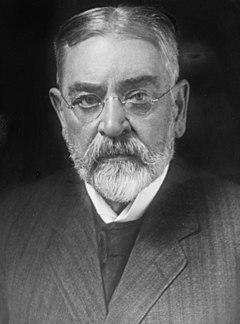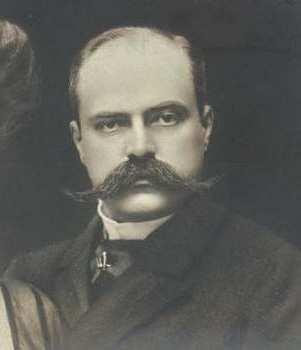Fingers crossed hoping that the corrupt and unconstitutional federal reserve bank will be butterfly away by this time line.
Great TL i will be lurking in the shadow of this one.
Always glad to know that death is lurking in the shadows.
Fingers crossed hoping that the corrupt and unconstitutional federal reserve bank will be butterfly away by this time line.
Great TL i will be lurking in the shadow of this one.
Closer relations with Prussia.
And since Frederick III, being known for his liberal stance, is the Kaiser in this time then there is a good chance that an alliance will foster between the two countries.
Personally, I like to see the US having a greater involvement and influence in the Pacific and East Asia. Though, I will admit I'm heavily biased in seeing this happen so there is likely some very implausible(or already averted if not ASB) future events.
Though, some of the things that could make for that in OTL have been averted. Like not getting Philippines Islands or Perry's suggestion of a base in Modern day Taiwan(rejected in OTL as being impractical which may likely be true).
Though, now I think about it further....I think Korea was annexed by Japan too quickly as Korea was independent for about 15 years OTL. And its leaders(some of them...) did tried hard to preserve Korean Independence. And as the United States already recogized Korea as a sovereign nation(presuming same as OTL) and there isn't the Philippines Islands for the Japanese to point at, the US may be much less willing for the Japanese to control Korea(more so if they see Japan using Korea as a stepping stone to control China, though that view is a major stretch).
Good points and thanks for the feedback, but I was referring to what would you like to see happen with China in the TL. Anyone have any ideas?
It is interesting, though how plausible it is leaves much to be desired. There's always been a strong Chinese identity, especially among the ethnic Han Chinese, since...really, the Han Dynasty. The Mandate of Heaven and the Chinese world view simply makes a serious Balkanization of China, barring warlordism, practically impossible at this stage of the game. You can form different states (A Manchu state, for example) separate from China, as well as other hinterlands of the former Chinese Empire, but the core of China will be incredibly difficult to keep separated in a serious balkanization attempt. While one can point to Taiwan, Taiwan has always held a distinct culture separate from the mainland, and, even during ROC, the KMT goal was always to unify China eventually (this of course lost steam in the 90's, but both Taiwan and China do still adhere to a One China Policy, even thought they disagree on the definition). At this stage of the game, China is as likely to balkanize as France is...today. Centralization and standardization, as well as the establishment of a Chinese national identity (things such as the Romance of the Three Kingdoms, for example, provide a common base), has at this point made it nearly impossible.Personally, i think that the balkanization of china would be a very interesting and unique idea. There's so much someone could do with that and it would definitely add flavor to the story. You should give it a try.
Maybe they just have the unification plans permanently postponed? Kinda like with North and South Korea.*snipped*
Maybe they just have the unification plans permanently postponed? Kinda like with North and South Korea.
Maybe have one faction strongly aligned with the US(who are seen as most friendly of Western nations towards of the Asian nations), another faction(or more) that are puppets for Europe, and maybe another for communist or traditional Chinese monarchy. They all want to unite China under their name, but none of them are strong enough to do it.
Maybe they just have the unification plans permanently postponed? Kinda like with North and South Korea.
Maybe have one faction strongly aligned with the US(who are seen as most friendly of Western nations towards of the Asian nations), another faction(or more) that are puppets for Europe, and maybe another for communist or traditional Chinese monarchy. They all want to unite China under their name, but none of them are strong enough to do it.
Interesting idea, I think it is possible to balkanize china in theory; Tibet, Xinjiang, and a Greater Mongolia are easy. The rest of China I believe could be divided into two to three other states with the appropriate PODs. one monarchist state the other Republican perhaps?
And so Britain is closer to Prussia, instead of France.
Thanks for the support. Yeah, believe it or not I actually intended the U.S. and U.K to be enemies but as I wrote the TL I discovered that with the TL's POD it is nearly impossible to have a believable Anglo-American War. They both share a common language, religion, and are both democracies so it is much more likely that they eventually end up as allies. Cheers!
Anyway, MacGregor, would you mind if I cleaned up the World Map for you?

I wanted to asked, but does Russia not have interest in East Asia in this TL?
Russia, after pressuring Britain and Germany, forced Japan to leave Korea alone as it had its own designs for East Asia. Added on to the fact this sudden annexation would likely hurt its international image and inflame Korean national dissent(most Koreans were very anti-Japanese to the point some would take up arms.)
Edit:
No boxer rebellion?


